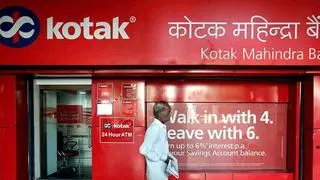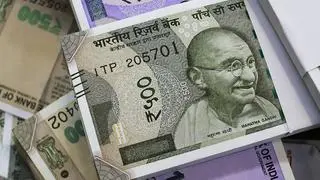Six months since, there is growing evidence that demonetisation has had a lasting impact in reducing the cash in circulation and increasing the number of non-cash transactions at India’s largest bank, State Bank of India.
Four out of every 10 transactions are now through non-cash mode — up from three out of 10 a year ago.
“Deposits post demonetisation (November 8, 2016) was ₹1,65,327 crore.
“Of the total, ₹1,24,000 crore was deposited in savings bank account, ₹35,000 crore in current account and around ₹5,000 crore in fixed deposits,” said Arundhati Bhattacharya, Chairman, SBI, at a press conference in Kolkata on Friday.
Cash retained“Sixty-five per cent of this amount is in the SBI banking system (retained by the bank),” she added.
The Chairman of India’s largest lender did not reveal details on currency denominations and incidence of fake currency etc, but she said the digital footprint of the bank increased post-demonetisation.
Rising trendThe bank claimed that non-cash transactions rose from 30 per cent (of total) in March 2016 quarter to 40 per cent in March 2017 quarter.
Noticeably, the digital transaction share was 38 per cent in December 2016 quarter, which means that SBI has not only maintained gains in the immediate aftermath of demonetisation but the trend is gaining strength.
Also read p10
The non-cash transactions are held through three avenues mobile banking, POS (debit card transactions) and internet banking. Available figures suggest mobile banking is not popular and remaining stagnant at three per cent.
The rise came through POS and internet banking. The later is the most popular mode and is now sharing 27 per cent of total number of transactions. The share moved from 23 per cent in March 2016. On the flipside, there is no growth in internet banking share during the last two quarters (sequential).
POS on the other hand is the new growth engine. SBI doubled its merchant base from 82,000 to 163,000 over the last year. Debit card spend increased 132 per cent from ₹41,681 crore in FY16 to ₹96,629 crore in FY17.
Transaction through bank POS increased by 2.5 times from approximately ₹23,000 crore to ₹59,000 crore. The spending has increased by 10 per cent in the last quarter.
Credit cardAccording to Dinesh Khara, managing director (Associate & Subsidiaries), anticipating future potential in the cards business, SBI has decided to increase its stake in the credit card subsidiary, SBI Cards, from 60 per cent to 74 per cent.
The share acquisition from JV partner GE capital will cost ₹1,600 crore.
SBI Cards posted ₹390 crore profit after tax in the last fiscal recording 30 per cent growth over FY16.







Comments
Comments have to be in English, and in full sentences. They cannot be abusive or personal. Please abide by our community guidelines for posting your comments.
We have migrated to a new commenting platform. If you are already a registered user of TheHindu Businessline and logged in, you may continue to engage with our articles. If you do not have an account please register and login to post comments. Users can access their older comments by logging into their accounts on Vuukle.